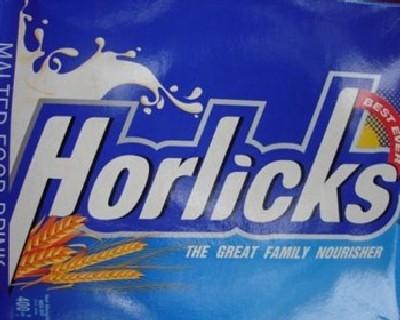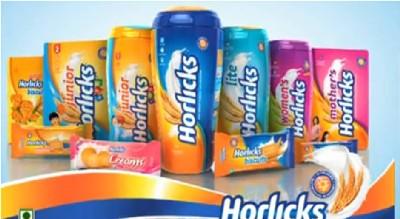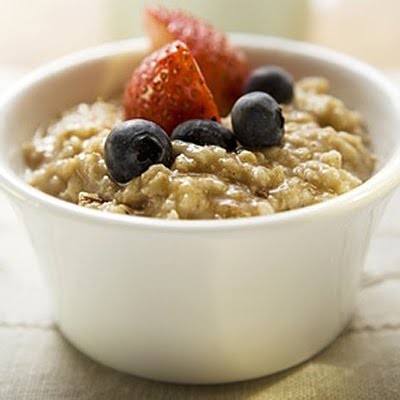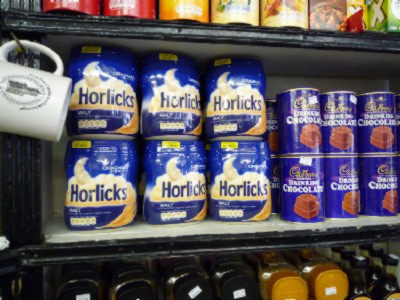 | « Back to article | Print this article |
Here's what Horlicks is doing to succeed
This move is in line with the company's vision to be perceived as more than just a health food drinks company. A concerted effort over the last few years has been made to enter allied food and beverage categories.
Despite commanding more than 70 per cent in the malted health drinks market, with its basket of brands - Boost, Maltova, Horlicks and Viva - the company is hungry for more. And Horlicks, the breadwinner in its portfolio which contributes over 60 per cent to GSK Consumer's topline, is paving the way.
Cereal bars (Horlicks Nutribar) and biscuits came first, followed by instant noodles (Horlicks Foodles) last year.
Click NEXT to read more...
Here's what Horlicks is doing to succeed
Now, the company has decided to enter breakfast foods with a product called Horlicks Oats. The product will be available in shelves in the South, before it is scaled up nationally.
The pricing of Horlicks Oats is in line with the market - Rs 32 for a 200 gm pack, Rs 58 for 400 gm and Rs 125 for 1kg. So what will the Horlicks brand look like in the years to come?
The plan is to be an overarching brand for family nutrition and one, which is present in all occasions wherever there is a need for nutrition.
"So, while the powdered drink has helped us tap the in-home consumption market, the extension into biscuits is for nutrition consumption on-the-go," says Jayant Singh, director (marketing), GlaxoSmithKline Consumer Healthcare.
Here's what Horlicks is doing to succeed
This is not to say that Horlicks has been ignoring its core business. The malt-food drink has also been stretched to target different consumer sets - from Horlicks Women, Junior Horlicks to the most recent premium variant Horlicks Gold, with considerable success.
"The extensions of the malt food drink brand contribute 20-25 per cent, but is growing faster than the base variant," claims Singh, who spearheaded Henkel India until recently.
So what makes the breakfast food segment attractive? And why has the brand chosen oats as a niche to begin with?
"While breakfast foods as a category is a logical extension of our 'nutrition' plank, we chose oats specifically as it is an emerging category (worth Rs 250 crore) growing at a healthy pace of 25 per cent," says Singh.
Horlicks is entering a market which has seen considerable action in the last few years. Players like Kellogg (Heart to Heart oats), Marico (Saffola Oats), Britannia Industries (Healthy Start) and Pepsi (Quaker Oats) have stirred up the market in recent times with packaged breakfast offerings.
Click NEXT to read more...
Here's what Horlicks is doing to succeed
Pepsi for instance has been pushing its Quaker Oats brand hard by making it more culturally relevant. To increase occasions for use, the brand has a recipe book which offers Indian oat recipes like oats idli and oats halwa.
With Horlicks Oats, the company is going after low-hanging fruit. First, the brand will be available in the South, which accounts for 75 per cent of total sales in the oats category.
The company will go beyond harping on heart benefits (similar to rivals), and focus on other health benefits like managing blood pressure and weight management.
Communication will be directed towards home-makers in the age group of 25-45 years in the metros, who are decision markers for such purchases.
The company is also banking on its existing network of experts, which include doctors and nutritionists who have played a key role in driving awareness for the Horlicks malt drink.
Click NEXT to read more...
Here's what Horlicks is doing to succeed
Sampling is not on the cards for now, but the company may consider it at a later date, says Singh.
Given that the company is not new to diversification, might give it some confidence. For instance, in the instant noodles category, Horlicks Foodles which initially suffered supply side bottlenecks has garnered a 3 per cent market share in South India.
Likewise, it is counting on the economy product Horlicks Asha to be one of the tickets to success in rural areas.
But other extensions like Horlicks Nutribar and Horlicks Chil Dood (flavoured milk) are still struggling due to product and supply chain issues.
Click NEXT to read more...
Here's what Horlicks is doing to succeed
Yet, analysts claim unlike extensions like noodles and biscuits, which is not a consumption item on the breakfast table, the entry into oats is a more strategic fit with the Horlicks core brand.
"Both are breakfast items which are consumed with milk," says an FMCG analyst who works with MG Global and wishes to stay anonymous.
Also, culturally, oats which is consumed with warm milk is similar to Indian porridge and has a better chance to succeed compared with cereal.
Today, roughly 8 per cent of total Horlicks sales come from food (biscuits and noodles). However, if consumers take a taste for it, Horlicks Oats could well be one of the trump cards for the company's success in foods.






